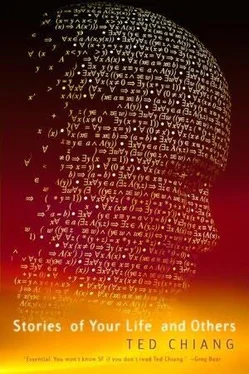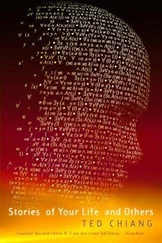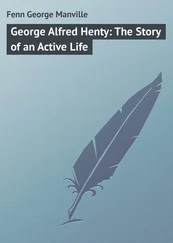Ted Chiang - The Story Of Your Life
Здесь есть возможность читать онлайн «Ted Chiang - The Story Of Your Life» весь текст электронной книги совершенно бесплатно (целиком полную версию без сокращений). В некоторых случаях можно слушать аудио, скачать через торрент в формате fb2 и присутствует краткое содержание. Жанр: Фантастика и фэнтези, на английском языке. Описание произведения, (предисловие) а так же отзывы посетителей доступны на портале библиотеки ЛибКат.
- Название:The Story Of Your Life
- Автор:
- Жанр:
- Год:неизвестен
- ISBN:нет данных
- Рейтинг книги:3 / 5. Голосов: 1
-
Избранное:Добавить в избранное
- Отзывы:
-
Ваша оценка:
- 60
- 1
- 2
- 3
- 4
- 5
The Story Of Your Life: краткое содержание, описание и аннотация
Предлагаем к чтению аннотацию, описание, краткое содержание или предисловие (зависит от того, что написал сам автор книги «The Story Of Your Life»). Если вы не нашли необходимую информацию о книге — напишите в комментариях, мы постараемся отыскать её.
The Story Of Your Life — читать онлайн бесплатно полную книгу (весь текст) целиком
Ниже представлен текст книги, разбитый по страницам. Система сохранения места последней прочитанной страницы, позволяет с удобством читать онлайн бесплатно книгу «The Story Of Your Life», без необходимости каждый раз заново искать на чём Вы остановились. Поставьте закладку, и сможете в любой момент перейти на страницу, на которой закончили чтение.
Интервал:
Закладка:
“I think that’s a good idea, Colonel,” I said.
It was an ambiguity invisible to most. A private joke; don’t ask me to explain it.
Even though I’m proficient with Heptapod B, I know I don’t experience reality the way a heptapod does. My mind was cast in the mold of human, sequential languages, and no amount of immersion in an alien language can completely reshape it. My world-view is an amalgam of human and heptapod.
Before I learned how to think in Heptapod B, my memories grew like a column of cigarette ash, laid down by the infinitesimal sliver of combustion that was my consciousness, marking the sequential present. After I learned Heptapod B, new memories fell into place like gigantic blocks, each one measuring years in duration, and though they didn’t arrive in order or land contiguously, they soon composed a period of five decades. It is the period during which I know Heptapod B well enough to think in it, starting during my interviews with Flapper and Raspberry and ending with my death.
Usually, Heptapod B affects just my memory: my consciousness crawls along as it did before, a glowing sliver crawling forward in time, the difference being that the ash of memory lies ahead as well as behind: there is no real combustion. But occasionally I have glimpses when Heptapod B truly reigns, and I experience past and future all at once; my consciousness becomes a half- century-long ember burning outside time. I perceive—during those glimpses—that entire epoch as a simultaneity. It’s a period encompassing the rest of my life, and the entirety of yours.
I wrote out the semagrams for “process create-endpoint inclusive-we,” meaning “let’s start.” Raspberry replied in the affirmative, and the slide shows began. The second display screen that the heptapods had provided began presenting a series of images, composed of semagrams and equations, while one of our video screens did the same.
This was the second “gift exchange” I had been present for, the eight one overall, and I knew it would be the last. The looking glass tent was crowded with people; Burghart from Ft. Worth was here, as were Gary and a nuclear physicist, assorted biologists, anthropologists, military brass, and diplomats. Thankfully they had set up an air conditioner to cool the place off. We would review the tapes of the images later to figure out just what the heptapods’ “gift” was. Our own “gift” was a presentation on the Lascaux cave paintings.
We all crowded around the heptapods’ second screen, trying to glean some idea of the images’ content as they went by. “Preliminary assessments?” asked Colonel Weber.
“It’s not a return,” said Burghart. In a previous exchange, the heptapods had given us information about ourselves that we had previously told them. This had infuriated the State Department, but we had no reason to think of it as an insult: it probably indicated that trade value really didn’t play a role in these exchanges. It didn’t exclude the possibility that the heptapods might yet offer us a space drive, or cold fusion, or some other wish-fulfilling miracle.
“That looks like inorganic chemistry,” said the nuclear physicist, pointing at an equation before the image was replaced.
Gary nodded. “It could be materials technology,” he said.
“Maybe we’re finally getting somewhere,” said Colonel Weber.
“I wanna see more animal pictures,” I whispered, quietly so that only Gary could hear me, and pouted like a child. He smiled and poked me. Truthfully, I wished the heptapods had given another xenobiology lecture, as they had on two previous exchanges; judging from those, humans were more similar to the heptapods than any other species they’d ever encountered. Or another lecture on heptapod history; those had been filled with apparent non-sequiturs, but were interesting nonetheless. I didn’t want the heptapods to give us new technology, because I didn’t want to see what our governments might do with it.
I watched Raspberry while the information was being exchanged, looking for any anomalous behavior. It stood barely moving as usual; I saw no indications of what would happen shortly.
After a minute, the heptapod’s screen went blank, and a minute after that, ours did too. Gary and most of the other scientists clustered around a tiny video screen that was replaying the heptapods’ presentation. I could hear them talk about the need to call in a solid-state physicist. Colonel Weber turned. “You two,” he said, pointing to me and then to Burghart, “schedule the time and location for the next exchange.” Then he followed the others to the playback screen.
“Coming right up,” I said. To Burghart, I asked, “Would you care to do the honors, or shall I?”
I knew Burghart had gained a proficiency in Heptapod B similar to mine. “It’s your looking glass,” he said. “You drive.”
I sat down again at the transmitting computer. “Bet you never figured you’d wind up working as a Army translator back when you were a grad student.”
“That’s for goddamn sure,” he said. “Even now I can hardly believe it.” Everything we said to each other felt like the carefully bland exchanges of spies who meet in public, but never break cover.
I wrote out the semagrams for “locus exchange-transaction converse inclusive-we” with the projective aspect modulation.
Raspberry wrote its reply. That was my cue to frown, and for Burghart to ask, “What does it mean by that?” His delivery was perfect.
I wrote a request for clarification; Raspberry’s reply was the same as before. Then I watched it glide out of the room. The curtain was about to fall on this act of our performance.
Colonel Weber stepped forward. “What’s going on? Where did it go?”
“It said that the heptapods are leaving now,” I said. “Not just itself; all of them.”
“Call it back here now. Ask it what it means.”
“Um, I don’t think Raspberry’s wearing a pager,” I said.
The image of the room in the looking glass disappeared so abruptly that it took a moment for my eyes to register what I was seeing instead: it was the other side of the looking-glass tent. The looking glass had become completely transparent. The conversation around the playback screen fell silent.
“What the hell is going on here?” said Colonel Weber.
Gary walked up to the looking glass, and then around it to the other side. He touched the rear surface with one hand; I could see the pale ovals where his fingertips made contact with the looking glass. “I think,” he said, “we just saw a demonstration of transmutation at a distance.”
I heard the sounds of heavy footfalls on dry grass. A soldier came in through the tent door, short of breath from sprinting, holding an oversize walkie-talkie. “Colonel, message from—”
Weber grabbed the walkie-talkie from him.
I remember what it’ll be like watching you when you are a day old. Your father will have gone for a quick visit to the hospital cafeteria, and you’ll be lying in your bassinet, and I’ll be leaning over you.
So soon after the delivery, I will still be feeling like a wrung-out towel. You will seem incongruously tiny, given how enormous I felt during the pregnancy; I could swear there was room for someone much larger and more robust than you in there. Your hands and feet will be long and thin, not chubby yet. Your face will still be all red and pinched, puffy eyelids squeezed shut, the gnome-like phase that precedes the cherubic.
I’ll run a finger over your belly, marveling at the uncanny softness of your skin, wondering if silk would abrade your body like burlap. Then you’ll writhe, twisting your body while poking out your legs one at a time, and I’ll recognize the gesture as one I had felt you do inside me, many times. So that’s what it looks like.
Читать дальшеИнтервал:
Закладка:
Похожие книги на «The Story Of Your Life»
Представляем Вашему вниманию похожие книги на «The Story Of Your Life» списком для выбора. Мы отобрали схожую по названию и смыслу литературу в надежде предоставить читателям больше вариантов отыскать новые, интересные, ещё непрочитанные произведения.
Обсуждение, отзывы о книге «The Story Of Your Life» и просто собственные мнения читателей. Оставьте ваши комментарии, напишите, что Вы думаете о произведении, его смысле или главных героях. Укажите что конкретно понравилось, а что нет, и почему Вы так считаете.












